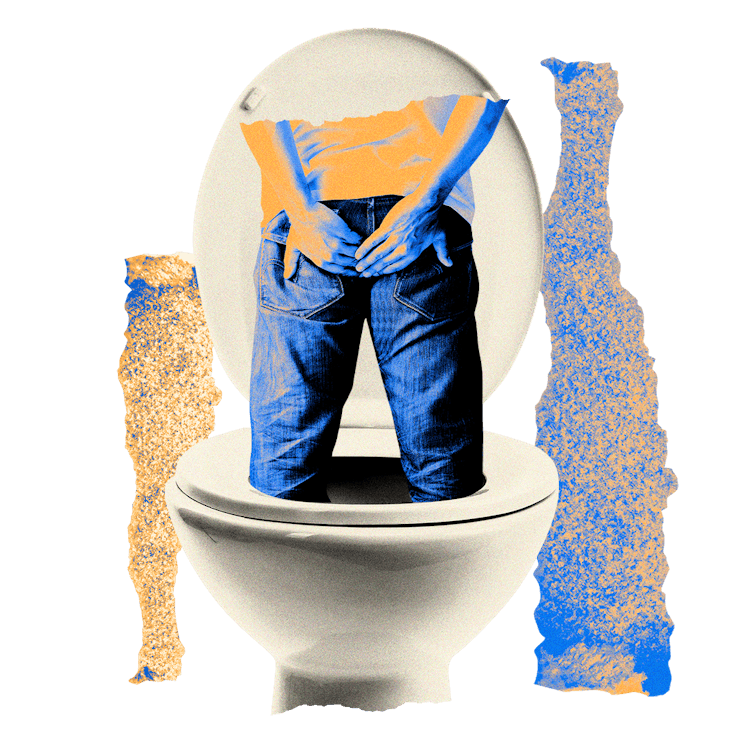This Is What Happens When You Hold In Your Poop
Most people don't realize the importance of the urge to go…until it's gone.

What happens if you don’t poop when you need to? The science is quite clear on this blush-inducing topic of holding in your poop. When you hold poop in, stool travels from the rectum back up to the colon, allowing the water in the stool to reabsorb into the body. Poop, sans water, lives on in the colon as a thoroughly unwelcome guest. Should’ve kicked it out when you had the chance.
“If people continue to ignore the urge to go to the bathroom, they can develop constipation,” says gastroenterologist Sarina Pasricha, M.D. “The nerves in the rectum can become damaged and respond inappropriately to stool in the rectum. In essence, your brain stops responding to the urge.”
Constipation, which affects approximately four million people, can escalate beyond uncomfortable bloating and gas. Harder stools and less responsive muscles often cause people to push harder when they have to go. This can make veins surrounding the anus swell, resulting in hemorrhoids — essentially varicose veins, inside or outside the anus. They itch, hurt, and can result in blood and mucus in the stool and during wiping. Another side effect of holding in your poop is developing tears in the tissue, known as anal fissure, from pushing out hard, painful poops.
In rare instances, holding in poop can lead to an impaction. That’s when so much stool gets backed up into the intestines that your body cannot push out the blockage. The resulting pain and vomiting will land you in the ER.
As troubling as all of those risks may be, one common, often overlooked risk of holding in poop is rectal hyposensitivity. In short, the rectum becomes desensitized and demands more poop before telling the brain that it’s time to go. “The anal muscles tighten up instead of relaxing when you try to have a bowel movement,” Pasricha says, adding that, in severe cases, this can lead to problems urinating and pain during sex for women.
Rebecca Lee, Ph.D., a nursing professor at the University of Cincinnati, agrees that it’s a vicious cycle. “When you hold in your poop, these same muscles send a signal to your brain to stop responding and can lead to slower emptying of the colon in the future.”
Fortunately, holding in poop only on special occasions shouldn’t cause any problems. It takes holding your poop repeatedly, over time, to cause most of these lasting issues. “Holding it is okay once in a while, but should definitely not become habit or a regular occurrence,” Pasricha says. “People may not realize it is a problem until they start to develop damage to their muscles and nerves.”
What Happens If You Hold In Your Poop
- When you hold in poop, it reabsorbs into your body and lives on in your colon. This is just an uncomfortable fact.
- Constipation can cause stools to harden, potentially causing hemorrhoids.
- In the worst case, holding it in can lead to impaction, and the resulting pain and vomiting will land you in the ER.
- Rectal hyposensitivity can occur, demanding more poop before telling the brain that it’s time to go.
This article was originally published on